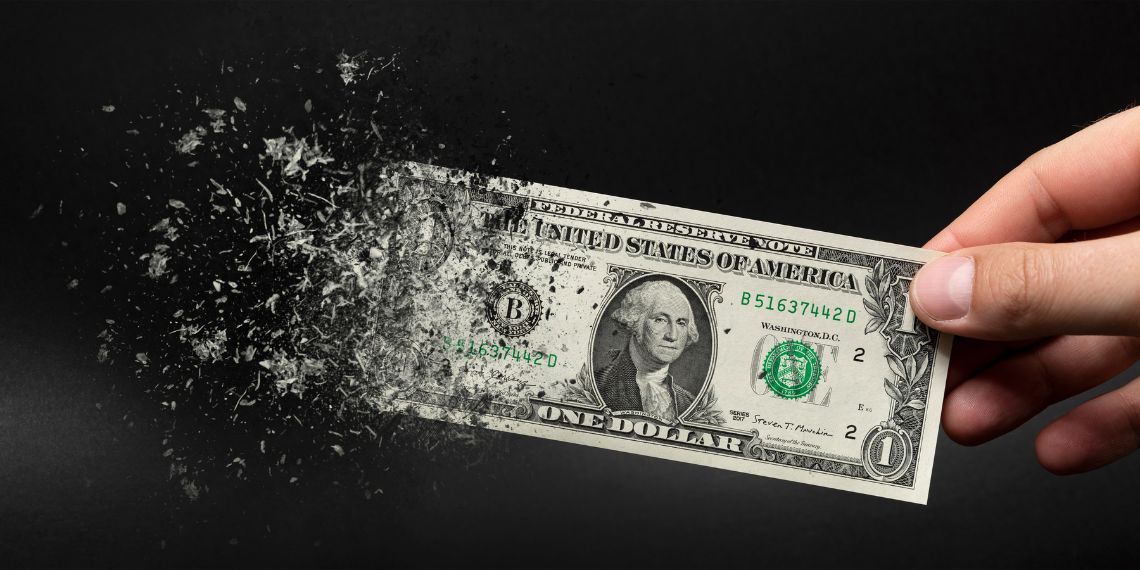
L’inflation est un phénomène économique qui peut créer des turbulences importantes sur les marchés. Elle se caractérise par une augmentation générale et continue des prix des biens et des services. En période inflationniste, de nombreux défis se présentent aux entreprises, des coûts de production en hausse aux pressions concurrentielles accrues. Dans ces circonstances, la marque devient un atout précieux pour maintenir la stabilité de l’entreprise. Cet article explore l’importance de la marque en période inflationniste, en se concentrant sur son ancrage pour les salariés et les clients de l’entreprise, tout en illustrant ces concepts par des exemples concrets.
Les employés d’une entreprise sont ses actifs les plus précieux. En période d’inflation, lorsque les coûts de la vie augmentent, la stabilité d’emploi et le sentiment de sécurité deviennent essentiels pour les salariés. C’est là que la marque de l’entreprise joue un rôle crucial. Les employés ont besoin de savoir que leur entreprise est capable de résister aux défis économiques et de maintenir un environnement de travail favorable. Une marque forte, avec une réputation solide, rassure les employés en leur offrant un sentiment de sécurité.
La marque à la pomme a réussi à maintenir un attrait constant pour les employés grâce à une culture d’innovation, des avantages sociaux compétitifs et une réputation d’excellence. Même en période d’inflation, les talents sont attirés par l’opportunité de contribuer à une entreprise qui incarne la créativité et la qualité. Cela démontre l’importance de l’ancrage de la marque pour maintenir une main-d’œuvre engagée et motivée.
Les clients sont l’autre moitié de l’équation. En période d’inflation, les consommateurs sont plus prudents quant à leurs dépenses. Ils cherchent des marques de confiance, car ils veulent s’assurer que leurs achats sont judicieux et qu’ils obtiennent la meilleure valeur possible. Une marque solide rassure les clients en leur donnant la certitude que l’entreprise continuera à offrir des produits et des services de qualité, malgré l’augmentation des coûts.
Cette marque automobile japonaise est reconnue pour sa fiabilité et son engagement envers la qualité. Même lorsque les prix de l’essence et des véhicules augmentent en période d’inflation, de nombreux clients continuent à choisir Toyota en raison de cette réputation établie. Ils savent qu’ils obtiennent un produit de qualité et un excellent service client, ce qui les encourage à rester fidèles à la marque.
Maintenir la Qualité : Assurez-vous que vos produits ou services maintiennent leur qualité, même si les coûts de production augmentent. Cela renforcera la confiance des clients.
Communiquer sur la Stabilité : Mettez en avant la solidité de votre entreprise et sa capacité à résister aux défis économiques. Les messages de confiance renforcent la réputation de la marque.
Innover de Manière Ciblée : Cherchez des moyens d’innover tout en préservant l’essence de votre marque. L’innovation peut aider à attirer de nouveaux clients et à fidéliser les anciens.
Écouter Vos Clients et Vos Employés : Soyez à l’écoute des retours de vos clients et employés. Leurs commentaires peuvent vous aider à ajuster votre stratégie de marque en conséquence.
Investir dans la Formation : En période d’inflation, l’amélioration des compétences des employés est essentielle pour maintenir la qualité et l’efficacité. Investissez dans la formation et le développement de vos équipes.
Diversifier Les Fournisseurs : Réduisez les risques liés à l’inflation en diversifiant vos fournisseurs. Cela peut vous aider à négocier de meilleurs prix.
En résumé, la marque joue un rôle essentiel en période inflationniste en offrant une stabilité aux employés et en rassurant les clients. Les entreprises qui investissent dans le renforcement de leur marque et qui s’adaptent de manière réfléchie à l’inflation sont mieux préparées pour prospérer, même dans des environnements économiques incertains. En suivant la check-list ci-dessus, vous pouvez mettre en place une stratégie solide pour renforcer votre marque et augmenter votre rentabilité.